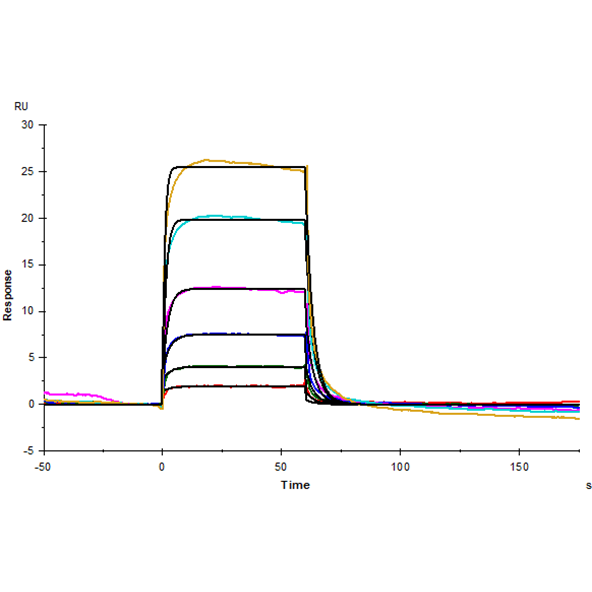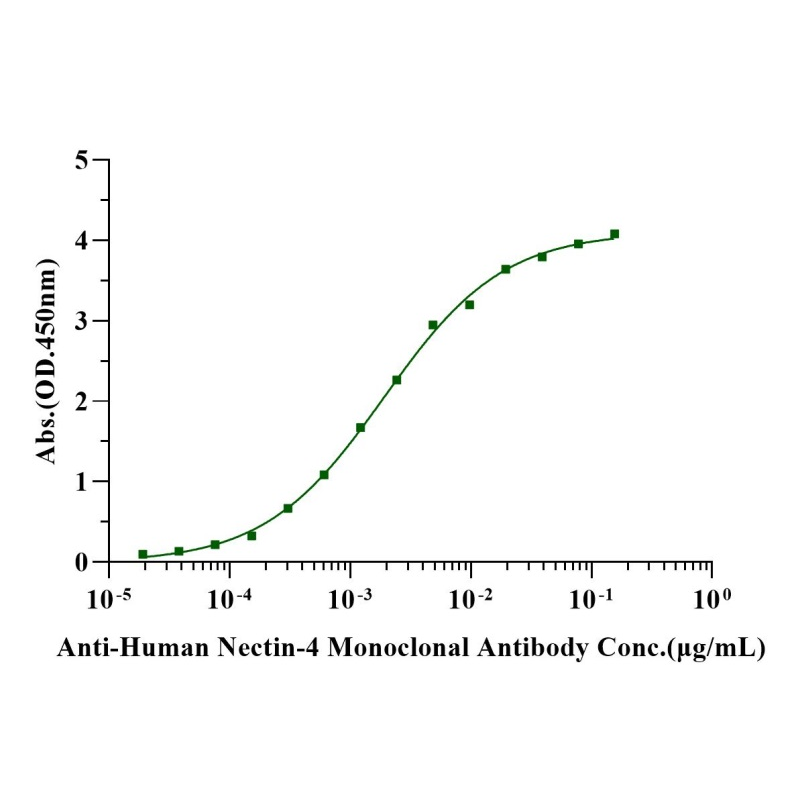Immobilized Nectin-4 His Tag, Human (Cat. No. UA010020) at 2μg/mL (100μL/well) can bind Anti-Human Nectin-4 Monoclonal Antibody with EC50 of 1.70-2.16 ng/ml.
Product Details
Product Details
Product Specification
| Species | Human |
| Synonyms | PVRL4; Nectin-4; Ig superfamily receptor LNIR; Poliovirus receptor-related protein 4; PRR4; LNIR; Nectin4 |
| Accession | Q96NY8-1 |
| Amino Acid Sequence | Q96NY8-1, Gly32-Ser349, with C-8*His GELETSDVVTVVLGQDAKLPCFYRGDSGEQVGQVAWARVDAGEGAQELALLHSKYGLHVSPAYEGRVEQPPPPRNPLDGSVLLRNAVQADEGEYECRVSTFPAGSFQARLRLRVLVPPLPSLNPGPALEEGQGLTLAASCTAEGSPAPSVTWDTEVKGTTSSRSFKHSRSAAVTSEFHLVPSRSMNGQPLTCVVSHPGLLQDQRITHILHVSFLAEASVRGLEDQNLWHIGREGAMLKCLSEGQPPPSYNWTRLDGPLPSGVRVDGDTLGFPPLTTEHSGIYVCHVSNEFSSRDSQVTVDVLDPQEDSGKQVDLVSASGGGSGGGSHHHHHHHH |
| Expression System | HEK293 |
| Molecular Weight | 44-47 kDa(reducing) |
| Purity | >95%, by SDS-PAGE under reducing conditions |
| Endotoxin | <0.1EU/μg |
| Conjugation | Unconjugated |
| Tag | His Tag |
| Physical Appearance | Lyophilized Powder |
| Storage Buffer | PBS, pH7.4 |
| Reconstitution | Reconstitute at less than 1 mg/mL according to the size in ultrapure water after rapid centrifugation. |
| Stability & Storage | · 12 months from date of receipt, lyophilized powder stored at -20 to -80℃. · 3 months, -20 to -80℃ under sterile conditions after reconstitution. · 1 week, 2 to 8℃ under sterile conditions after reconstitution. · Please avoid repeated freeze-thaw cycles. |
Background
Nectin-4, also known as poliovirus-like receptor 4 (PVRL4), is a newly discovered cell adhesion molecule, which belongs to the Nectin family. There are four members of the Nectin family: Nectin-1, Nectin-2, Nectin-3 and Nectin-4. There are three continuous immunoglobulin-like domains outside the cells of Nectin protein, which are N-terminal Ig-V domain and C-terminal Ig-C2 domain. Nectin-4 is mainly expressed in placenta, expressed in normal human tissues including skin, bladder, salivary glands, esophagus, breast and stomach, and abnormally expressed on the surface of a variety of cancer cells such as breast cancer, bladder cancer, non-small cell lung cancer and pancreatic cancer. Nectin-4 promotes the proliferation, differentiation, migration and invasion of tumor cells by activating PI3K/Akt pathway. In some cancers, such as urothelial carcinoma, the high expression of Nectin-4 can promote tumor cell proliferation and angiogenesis and reduce cancer cell apoptosis. Some studies have shown that Nectin-4, as a new ligand of TIGIT, can inhibit the activity of natural killer cells. These suggest that Nectin-4 may be a potential target for cancer therapy.
Picture
Picture
Bioactivity
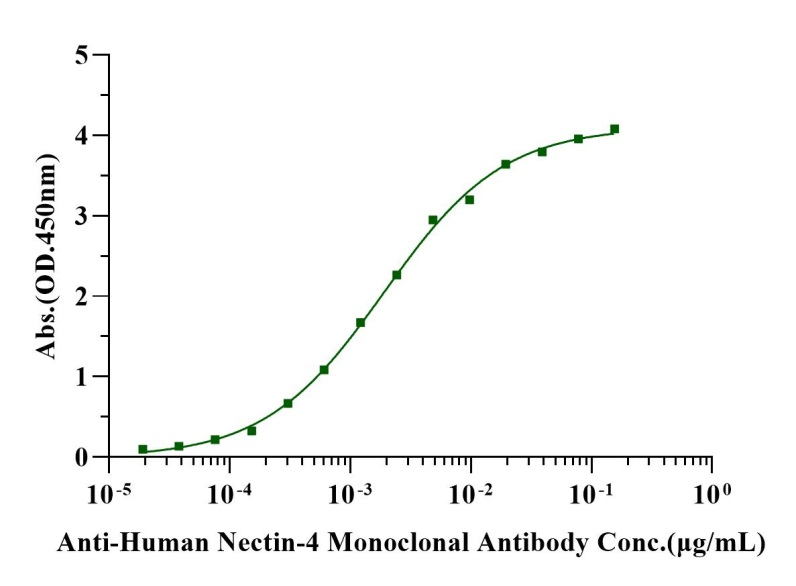
SDS-PAGE
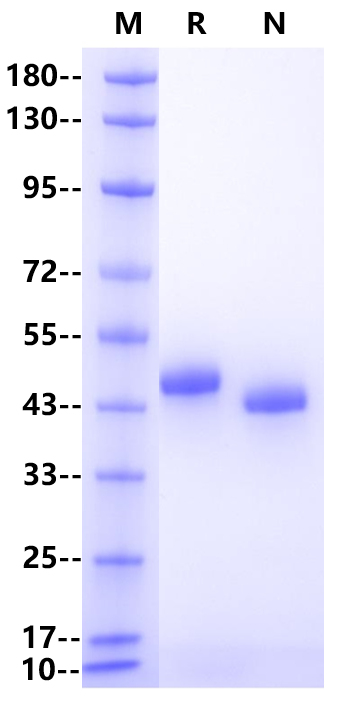
SPR
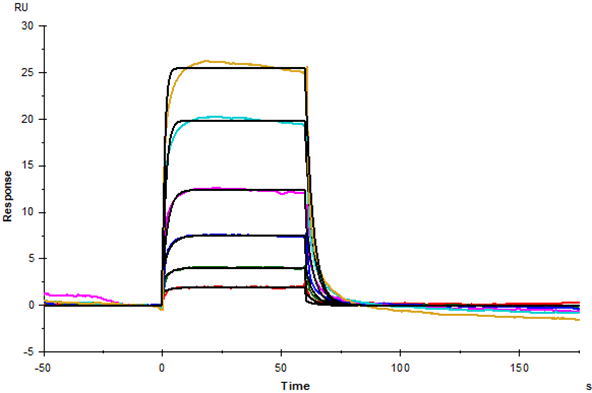
Anti-His antibody Immobilized on CM5 Chip captured Nectin-4 His Tag, Human (Cat. No. UA010020), can bind Nectin-1 Fc Chimera, Human (Cat. No. UA010016) with an affinity constant of 0.521μM as determined in SPR assay.
